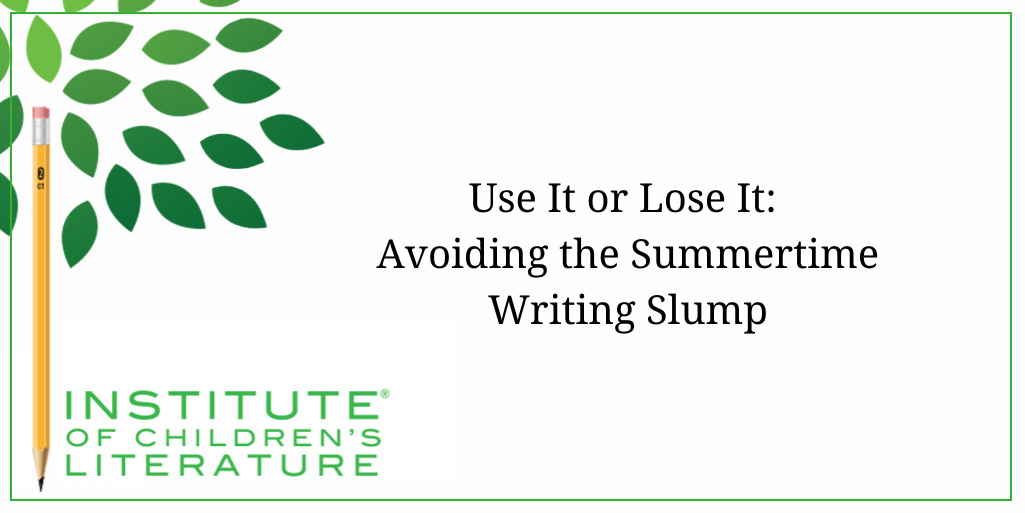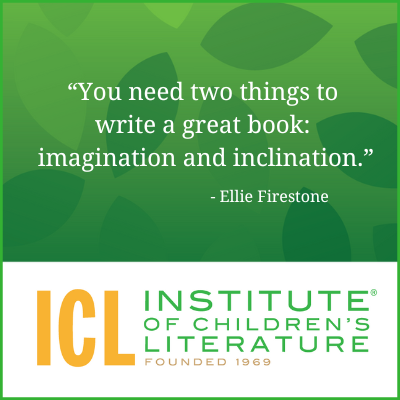
5 Ways Writers Can Prep for 2025 Goal Setting
Before we roll on to the new writing year, let’s harness our optimism for the blank slate before us and prepare for our 2025 Goal Setting just for writers.

We teach our students how to write and get published!
View our Course Catalog >
In a recent study published in the American Educational Research Journal, researchers revealed that the average student loses 17 to 34% of the prior year’s learning gains during summer break. Summer learning loss is worrisome for educators, but what studies also find is that summer learning loss varies greatly. It isn’t a sure thing, and it doesn’t have to be as significant as researchers first thought. Summer doesn’t have to be a time of lost learning. Researchers still aren’t completely sure how to combat summer learning loss for all students, but it’s reasonable to assume that learning during summer is definitely going to help.

For instance, a family trip to the zoo might make a fun journal entry for anyone, but it could also be linked to journaling exercises in poetry writing (especially since there are so many wonderful, animal-themed poems that you might use as mentor texts). A trip to the park can lead to journaling exercises like sensory maps (recording at least one example of things the child saw, heard, smelled, felt and tasted in the park, and matching them to where the sensory experience occurred). With regular experience reading and writing throughout the summer, the summertime learning slump doesn’t need to slow your child’s forward momentum.
Recently we talked about having the determination to stick with a project until it’s finished, but this month we’re looking at something a bit different: sticking to writing anything at all when faced with the many temptations of summer. Just as kids can lose learning gain during the summer, adults can fall into a writing slump as well. The effort you’ve put into growing as a writer isn’t bulletproof. If you walk away from writing for months, when you come back, you’ll find you don’t have the ease you had when you left. And if you’ve not been thinking about building plots and making three-dimensional characters for that time, you may find jumping back into it is harder than you expected.
At the same time, that doesn’t mean writers should never take breaks. Breaks are refreshing and can unclog the creative pipes, but it helps if you use your breaks well. Breaks spent reading, for instance, are learning experiences for adults just as they are for children. When you read a book, you immerse yourself in the world of the book and go on the journey the author intended, but you also teach your brain things about how stories work, how description works, and how setting works. All the moving parts of writing are seeping into your head as you read. So, if you’re on a break from writing, don’t let it become a break from reading as well.
Consider doing some active reading where you either journal along with the reading or pause intentionally to think about such things as what elements of the story are proving more compelling for you and making predictions about where the tale is going. Just as this kind of active reading helps your children become better readers and writers, they can help you be more aware of the way writing is constructed and that information will come in handy when you’re crafting your own tales.
Sometimes the writing break that comes in summer isn’t intentional. Sometimes you want to write. You intend to write. But the busy days of summer with the kids home, and the day full of potential seem to pass quickly. And often that writing you fully intended to do never happens.
One way to keep summer from slipping away without you gaining any ground with your writing is to invest in something that pushes you out of your writing slump into the writing mode. You might go to a workshop. Summer writing workshops pop up all over since this is a time when many people are looking for such opportunities. You might schedule a retreat, a time away from the bustle of home where you go alone (or with other writing friends) with the intention of writing. There are structured writing retreats available for writers, or you can create one of your own by booking a weekend at a pleasant bed and breakfast with just you and your laptop.
If you want bigger accomplishments to look back on for the summer, you might consider a long-term writing course. Classes exist in person, online, or via distance learning. There are even self-directed courses you can take which allow the learning to shape itself completely around your schedule. Sometimes the commitment of investing in a course is enough to give you the motivation to work through it.
Your writing summer can be whatever works best for you. Maybe you want to buy matching journals with you and your children and shape your summer about journal activities you can do together. Poetry day might be fun for your kids and help kickstart their brains, but it could also give you a chance to create poetry you can sell to the magazine. Maybe you want to try a writing class with your kids. Or maybe you want your summer writing to be a separate thing, a time apart (physically or mentally) with writing classes, workshops, or retreats. Whatever you choose, your summer writing adventure can be fun, productive, and exciting. It’s all up to you.
With over 100 books in publication, Jan Fields writes both chapter books for children and mystery novels for adults. She’s also known for a variety of experiences teaching writing, from one session SCBWI events to lengthier Highlights Foundation workshops to these blog posts for the Institute of Children’s Literature. As a former ICL instructor, Jan enjoys equipping writers for success in whatever way she can.

Before we roll on to the new writing year, let’s harness our optimism for the blank slate before us and prepare for our 2025 Goal Setting just for writers.

Writers can be thin-skinned when it comes to getting feedback on their work. Let’s look at 4 ways to positively deal with constructive criticism!

Rejection is part of the territory when it comes to being a writer. Today we offer reflection for writers to help redirect your efforts after a rejection.
1000 N. West Street #1200, Wilmington, DE 19801
© 2024 Direct Learning Systems, Inc. All rights reserved.
1000 N. West Street #1200, Wilmington, DE 19801
© 2024 Direct Learning Systems, Inc. All rights reserved.
1000 N. West Street #1200, Wilmington, DE 19801
© 2024 Direct Learning Systems, Inc. All rights reserved.
1000 N. West Street #1200, Wilmington, DE 19801
© 2024 Direct Learning Systems, Inc. All rights reserved.

1000 N. West Street #1200, Wilmington, DE 19801
© 2025 Direct Learning Systems, Inc. All rights reserved.

1000 N. West Street #1200, Wilmington, DE 19801
©2025 Direct Learning Systems, Inc. All rights reserved. Privacy Policy.